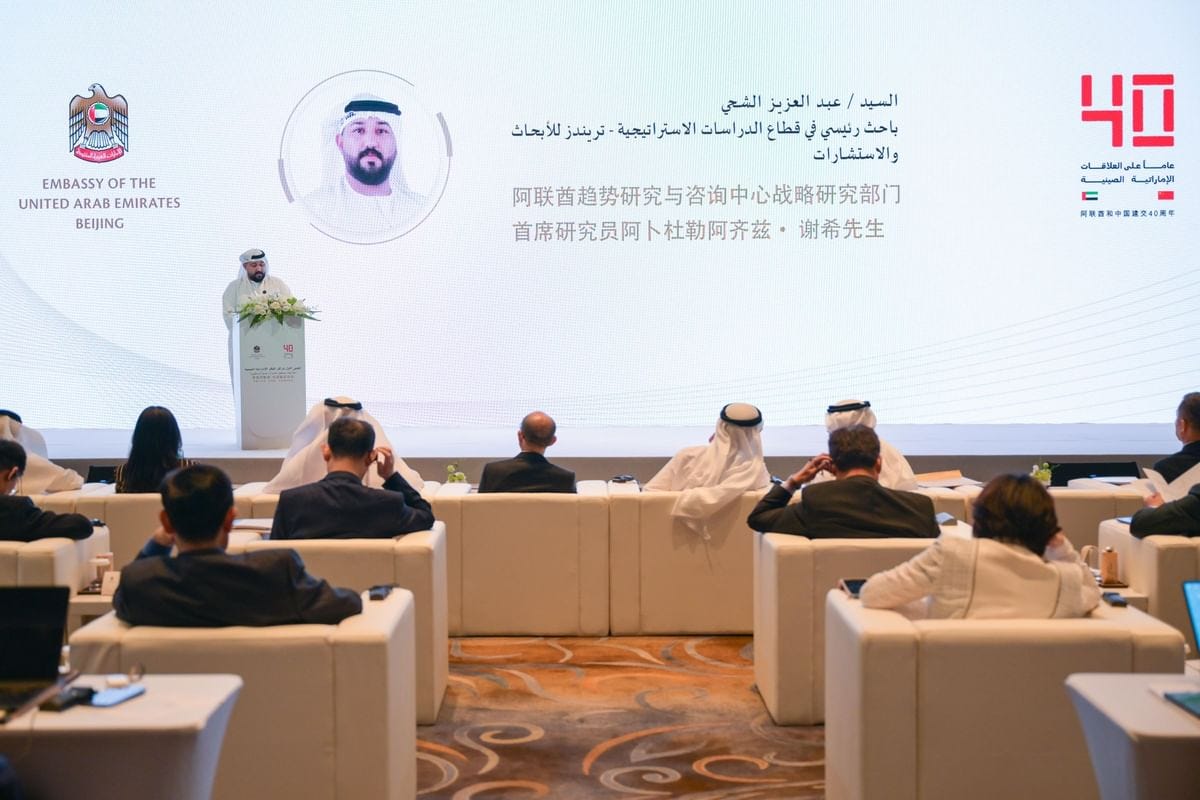200+ Chinese nationals evacuated from Lebanon, UAE think tank joins GDI Part-NIR network, Chinese EVs and renewables for Saudi Arabia, a new Saudi award to foster cultural cooperation with China
I’m back to regular posting after a short trip. I had a lot of China-Middle East stories to wade through today but very little of it was especially useful - mostly reaction pieces to the conflict escalation without details particular to China. There’s a lot of speculation and a lot of instant experts with hot takes, and I don’t have the patience for that today.
More than 200 Chinese citizens evacuated from Lebanon, foreign ministry says - Reuters - AFP puts the number at 215 Chinese nationals evacuated, although it wasn’t reported where they were taken. I suspect the The People's Liberation Army Support Base in Djibouti was used in the evacuation.
‘TRENDS’ joins GDI-PartNIR network - Emirates News Agency WAM. TRENDS in the UAE has become the first Middle Eastern think tank to join the GDI-PartNIR network, which “supports the Global Development Initiative under President Xi Jinping of China, and focuses on promoting shared development opportunities including green development, new industrialisation, and the digital economy.” It will be interesting to see how this develops.
China Eyes Electric Vehicle Manufacturing Opportunities in Saudi Arabia - Asharq Al-Awsat. An interview with PRC Ambassador to Saudi Arabia Chang Hua where he gives some interesting details about the bilateral relationship:
According to Hua, the cooperation between the two nations has grown significantly, particularly in the automotive, renewable energy, and tourism sectors.
In 2023, Saudi imports of Chinese cars reached $4.12 billion, driven by companies like Changan, Geely, MG, Chery, Great Wall, Hongqi, GAC, and BYD, which have opened branches in the kingdom.Discussions are ongoing about building local manufacturing plants. China exported 4.91 million vehicles in 2023, making it the largest car exporter globally for the first time, including 1.203 million electric vehicles, a 77.6% increase from the previous year.
Hua noted that Saudi Vision 2030 aims for electric vehicles to account for at least 30% of all cars in Riyadh by 2030, and he expressed optimism about enhancing collaboration in automotive manufacturing.Chinese companies are also increasingly involved in Saudi Arabia’s renewable energy sector. They are working on multiple solar projects, including the Al Shuaibah photovoltaic plant, the largest of its kind in the world, with a capacity of 2.6 gigawatts.
In July 2023, the Renewable Energy Localization Company (RELC), backed by the Saudi Public Investment Fund, signed agreements with three Chinese firms—Envision Technology Group, Jinko Solar, and TCL Zhonghuan—to establish joint ventures for high-efficiency solar cell production in Saudi Arabia.
These projects will focus on producing solar components, helping Saudi Arabia achieve its goal of sourcing 75% of renewable energy project components locally by 2030.Hua also highlighted the increasing exchange of visits between citizens of both countries. In September 2023, China and Saudi Arabia signed a memorandum of understanding to facilitate group tourism, making the kingdom an official destination for Chinese tour groups.
Several Chinese travel agencies have begun offering packages to Saudi Arabia, and direct flights between the two countries are increasing. Saudi Airlines has expanded its routes, operating numerous weekly flights between Beijing, Shanghai, Shenzhen, Riyadh, and Jeddah.
Saudi-Chinese Cultural Exchange Highlighted at Riyadh International Book Fair - Saudi Press Agency. More Saudi-China, including the new (?) Prince Mohammed bin Salman Cultural Cooperation Award:
A seminar on Prince Mohammed bin Salman Cultural Cooperation Award, which aims to foster creative cooperation and further the cultural dialogue between Saudi Arabia and China, was held yesterday on the sidelines of the Riyadh International Book Fair.
The seminar explored Saudi Arabia’s and China’s investing in the development and education of their youths, to foster future leaders capable of advancing their countries' interests.
Participants said that the award reflects the Kingdom's openness, cultural diversity, and belief in the essential role culture plays in strengthening cultural ties with China.
The seminar discussed the cultural heritage and history of Saudi Arabia and China, dating back thousands of years.
Both countries have rich traditions in arts, crafts, and ancient trade relations, through the Silk Road, which facilitated the exchange of goods and cultures. Participants highlighted the fact that students are not motivated only by the award, but also by the desire to promote their countries' objectives. A significant number of Saudi and Chinese nationals applied to participate in the competition for the award.




